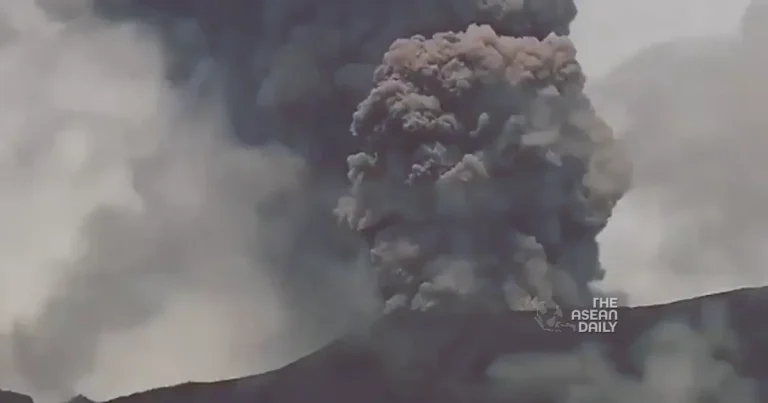29-1-2025 (JAKARTA) Mount Marapi, a prominent volcano straddling the Agam and Tanah Datar regencies in West Sumatra, has erupted once again, prompting authorities to impose a permanent ban on climbing activities. The decision, reached jointly by the West Sumatra Natural Resources Conservation Agency (BKSDA), the Ombudsman, and the local governments of Agam and Tanah Datar, underscores the ongoing risks posed by the active volcano. Residents have also been urged to avoid activities within a 3-kilometre radius of the eruption zone, as the mountain remains on a Level Two alert status, indicating significant volcanic activity.
Lugi Hartanto, Head of the West Sumatra BKSDA, confirmed the closure, stating, “Based on a collective agreement, Mount Marapi will be permanently closed to the public.” He emphasised that the decision prioritises public safety, particularly given the volcano’s unpredictable nature. The 2,891-metre-high mountain has been under close surveillance since its recent eruption, with authorities warning against any activities near its crater.
The permanent closure comes after a series of consultations between the BKSDA, local governments, and the Ombudsman. However, Lugi noted that the policy could be revisited if the volcano’s activity subsides and its alert level is downgraded to Level One. “If the mountain returns to a normal state or its alert level is reduced, we will reassess the situation,” he added.
Despite the ban, the BKSDA has pledged to intensify monitoring efforts to prevent unauthorised climbs. The agency has called on the Agam and Tanah Datar administrations to support the initiative by cracking down on illegal climbers. This follows an incident on 19 January 2025, when seven unauthorised climbers, aided by two local residents, attempted to scale the mountain despite its active status.
Adel Wahidi, Assistant Ombudsman for West Sumatra, highlighted the importance of the permanent closure in sending a clear message to the public. “This step is crucial to inform the wider community that climbing Mount Marapi is prohibited due to the dangers it poses to safety,” he said. Adel expressed concerns that some individuals might still attempt to climb the volcano, mistakenly believing that a reduction in its alert level makes it safe.
The collaborative decision to close Mount Marapi reflects a proactive approach to disaster prevention and public safety. Authorities are determined to enforce the ban rigorously, ensuring that no further risks are taken by climbers or local residents.
Mount Marapi, one of Indonesia’s most active volcanoes, has a history of eruptions, with the latest activity serving as a stark reminder of its potential hazards. The permanent closure marks a significant shift in how the region manages the risks associated with the volcano, prioritising human safety over tourism and recreational activities.




